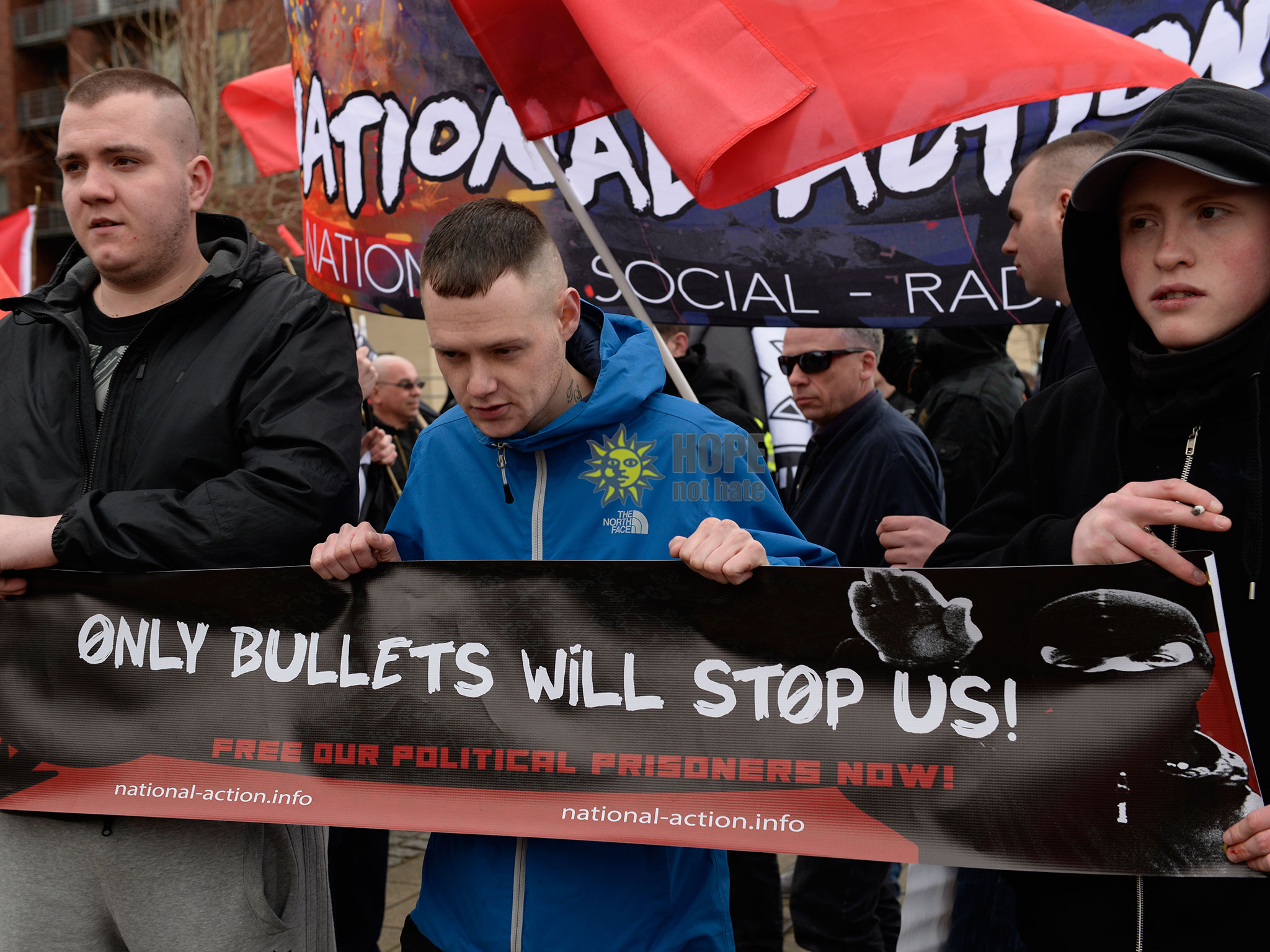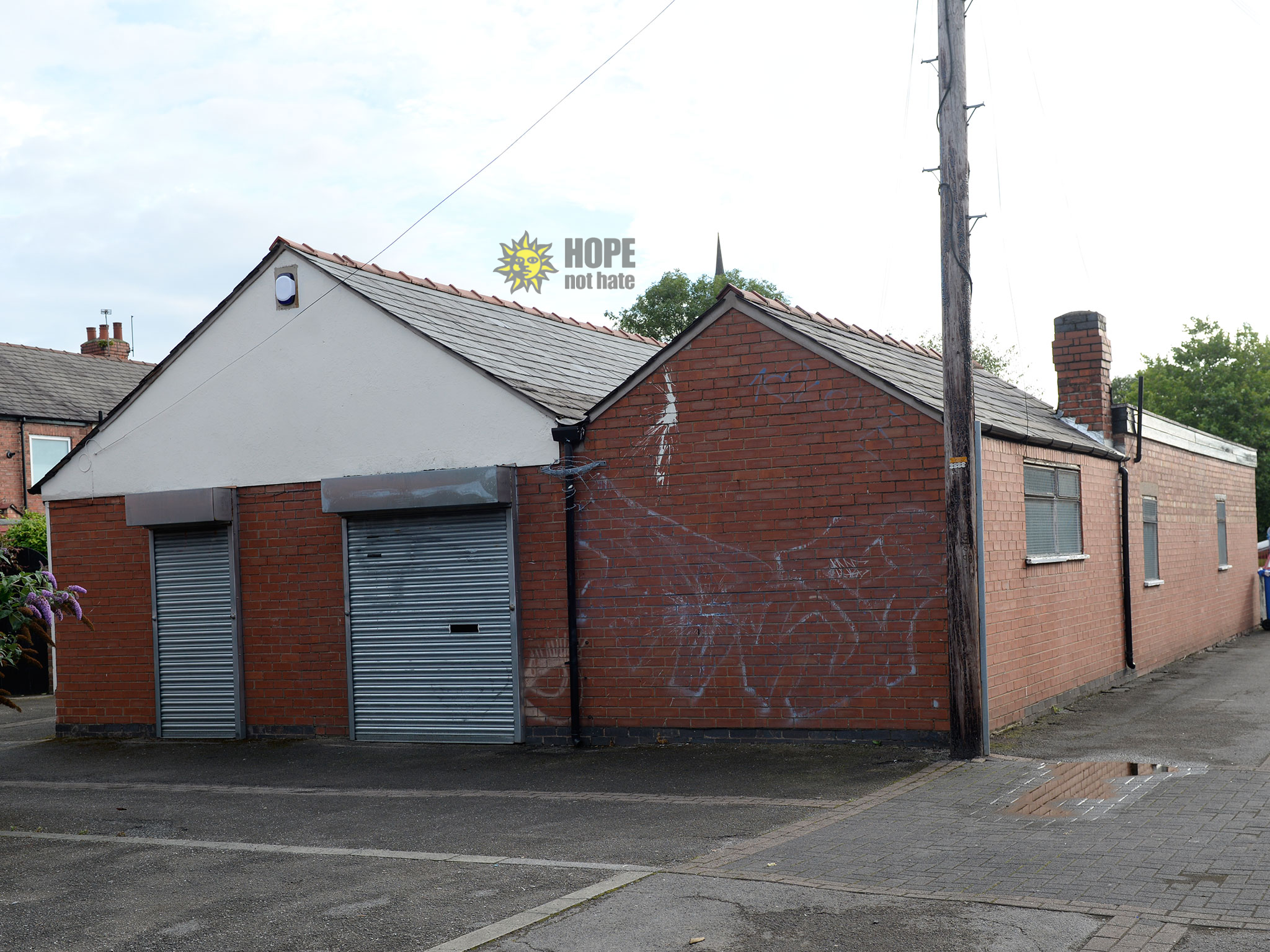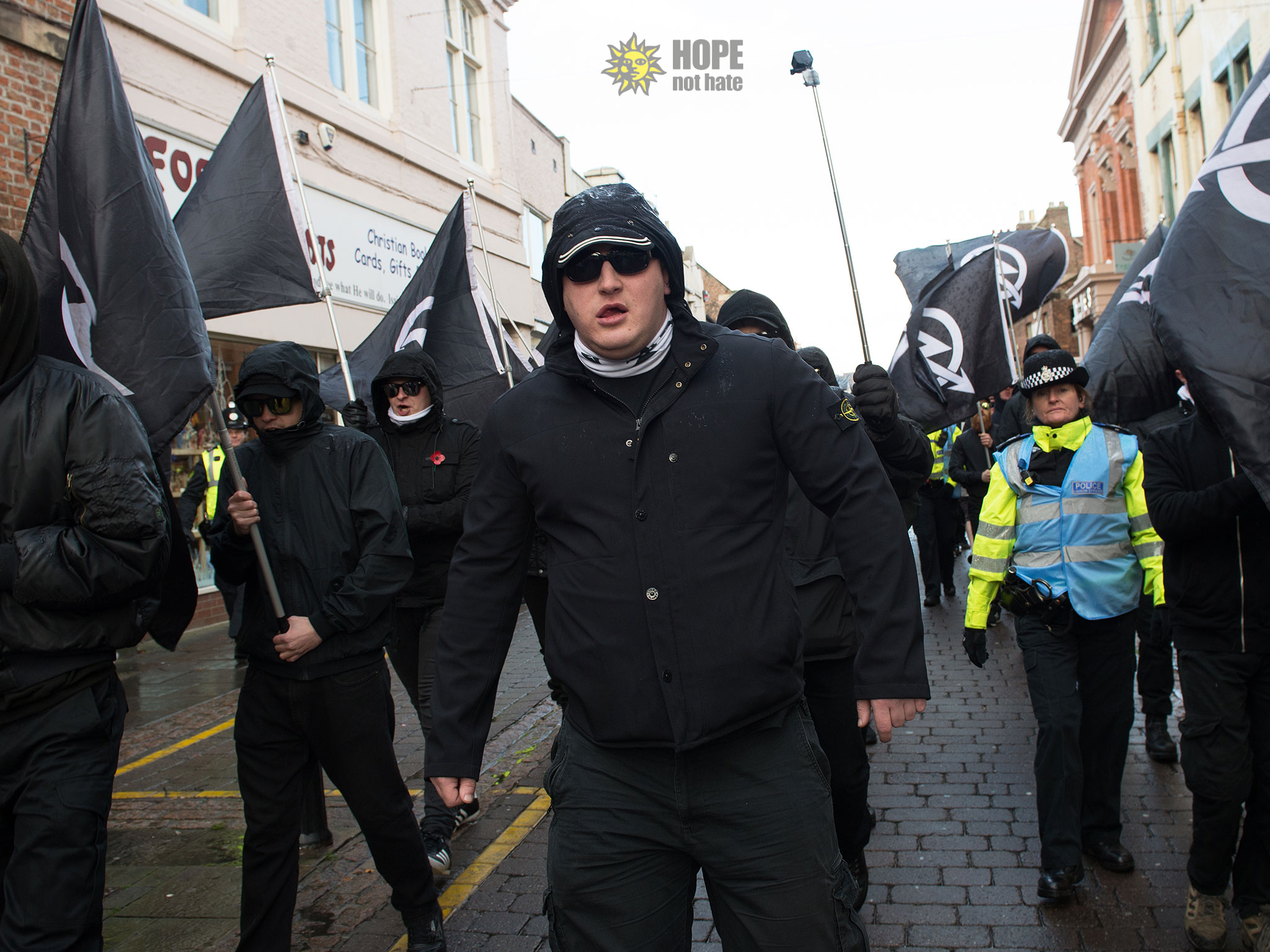National Action: Banned neo-Nazi terrorist group still active in UK after finding loophole
Exclusive: Members allegedly seen meeting at ‘terror training camp’ within the past week

Members of the UK’s first ever banned neo-Nazi terrorist group are using a loophole in the law to continue operating despite being outlawed by the Government, it has emerged.
National Action is evading authorities by taking on new names – allegedly including Scottish Dawn and NS131 – in a technique used prolifically by Anjem Choudary’s Islamist network.
The group was proscribed as a terrorist organisation in December, making being a National Action member a criminal offence punishable by up to 10 years in prison, but a former detective said police are left powerless to arrest neo-Nazis acting under new names.
The warning came after five alleged members of National Action – including four serving soldiers – were arrested this week on suspicion of preparing acts of terrorism.
Matthew Collins, the head of research at campaign group Hope Not Hate, said known neo-Nazis from National Action were seen meeting at a “terror training camp” in Warrington as recently as last Saturday.
“There were 10 of them in there training,” he told The Independent. “They believe they’re untouchable, they laugh at the police.”
The warehouse, which sits next to a children's playground on an industrial estate, has been converted into a gym and office.

Undercover footage has shown neo-Nazis training with wooden knives and baseball bats, learning mixed martial arts and listening to lectures on “white jihad”.
Mr Collins said National Action has focused on Muslims but is fundamentally antisemitic, propagating Jewish conspiracy theories while fostering a “deep obsession with violence”.
“They believe they’re going to be involved in some kind of war,” Mr Collins said.
“This is preparation – they believe it’s necessary because there’s going to be a race war, which will be triggered by Islamist terrorist attacks, and then they will lead legions of white people into war against Jews.”
The group was known for using the phrases “Hitler was right” and “Britain is ours, the rest must go” at marches, and online propaganda included images showing members performing Hitler salutes inside a German concentration camp.
National Action was founded in 2013 but was not banned until it was tied to violent attacks and plots, including the murder of Labour MP Jo Cox.
“Death to traitors, freedom for Britain” became a slogan for the group after being said in court by Thomas Mair, who was glorified in online propaganda calling for murders.
In February, a 17-year-old National Action member from Bradford was ordered to undergo intensive counselling after making a pipe-bomb.
The boy claimed he had no intention of using the improvised explosive device but told the court he was still a neo-Nazi and supporter of National Action.
“Thomas Mair is a HERO,” he had written online. “We need more people like him to butcher the race traitors.”
Mr Collins, who was a member of the National Front as a teenager, said there was evidence suggesting that National Action members are planning terror attacks.
“These people are far more dedicated, far more sophisticated and far more dangerous than previous groups,” he added.
“They’ve seen the British National Party try and fail mainstream politics, seen the National Front fail and the EDL degenerate into drugs.
“They’re younger, they’re smarter, they’re savvier and they model themselves on obscure violent groups.”
Mr Collins said members have read up on the IRA’s cell structure and studied the far-left Baader-Meinhof Group, while ironically appearing to repeat techniques recently used by Islamists to evade authorities.
British security services battled for decades to clamp down on a network of Islamists originally known as al-Muhajiroun, eventually succeeding in jailing leader Choudary for inviting support for Isis last year.
As members were repeatedly arrested and released, the group mutated and took on a series of names that left authorities powerless to detain them.
Each time the government proscribed al-Muhajiroun’s latest incarnation, another would spring up. The current list of banned groups includes 10 different aliases, including Islam4UK, Muslims Against Crusades and The Saved Sect.
The ringleader of the London Bridge attack, Khuram Butt, was a member of the network, as were the men who murdered Fusilier Lee Rigby, attack plotters, suicide bombers and militants who have joined Isis and other terrorist groups around the world.
David Videcette, a former counter-terrorism detective in the Metropolitan Police, said National Action was following a similar path.
“The problem is that as soon as the Government proscribes an organisation, they change the name and there’s very little law enforcement can do,” he told The Independent.
“You have to go through Parliament to get a new organisation proscribed so it’s not ideal.
“I think authorities have got to start going after people individually – they know who they are.”
Mr Videcette said police had “failed” with Choudary because they attempted to prosecute him for terror offences that could not be proved, rather than criminal offences that may have resulted in conviction.
He added: “These right-wing groups are racial hatred and violence… there are other laws and tactics you can use to arrest them.”
National Action are believed to be attempting to disguise themselves with aliases, including Scottish Dawn and NS131.
Mr Collins estimates that up to 60 members are currently active, down from a peak of 150 when a neo-Nazi conference was held in Southport.

“They are still very active – they’re still meeting and organising,” he warned. “We cautiously welcomed the proscription of them but we were privately concerned that we didn’t think the police really understood culturally how difficult the group was and how it was evolving.
“Some of the attempts to curtail or disrupt the group have been clumsy and ill-informed – police seem to think they’re still dealing with the BNP or National Front.”
Emily Winterbotham, a senior research fellow in national security at the Royal United Services Institute for Defence and Security Studies (RUSI), said National Action was part of a wider resurgence in the far right.
She said attacks classed as hate crime, such as vandalism and verbal abuse directed at Muslims, had risen but were not always linked by authorities to extremist groups.
“I think sometimes there’s a tendency to downplay some more extreme right-wing activity as hooliganism,” she added.
“But 20 per cent of referrals to the Channel counter-extremism programme are related to the far-right.
“But the fact that there have now been arrests shows that the security services are looking into people with links to far-right groups in all walks of society.”
Detectives have been granted extra time to question five suspected members of National Action, including four soldiers, who were detained on suspicion of “being concerned in the commission, preparation and instigation of acts of terrorism”.
The fifth suspect, a soldier who was serving with the Royal Anglian Regiment in Cyprus, was formally arrested on Friday after being flown back to the UK from RAF Akrotiri.
The 24-year-old from Northampton remains in custody alongside a 22-year-old man from Birmingham, a 32-year-old man arrested in Powys, a 24-year-old arrested in Ipswich and a 24-year-old arrested in Northampton.
“The arrests were pre-planned and intelligence-led,” a spokesperson from West Midlands Police said. “There was no threat to the public’s safety.”
